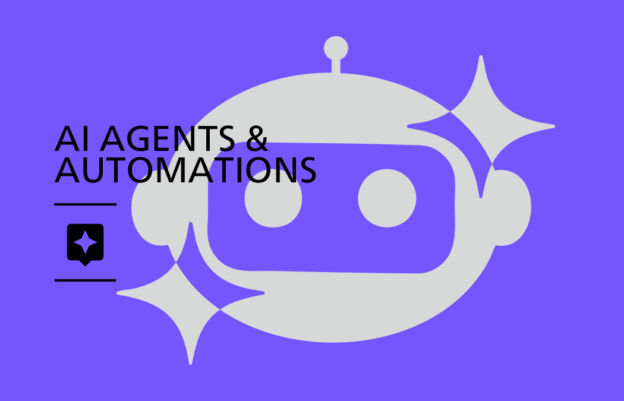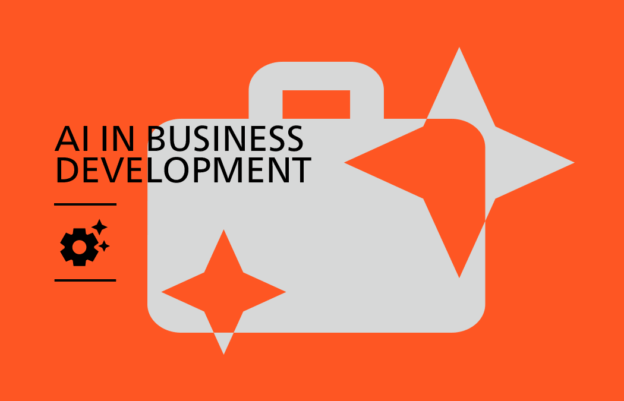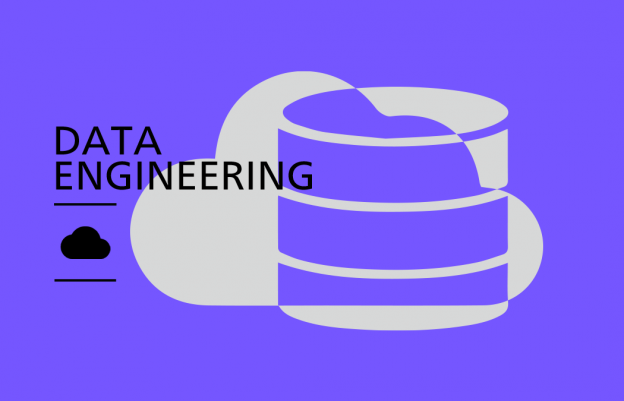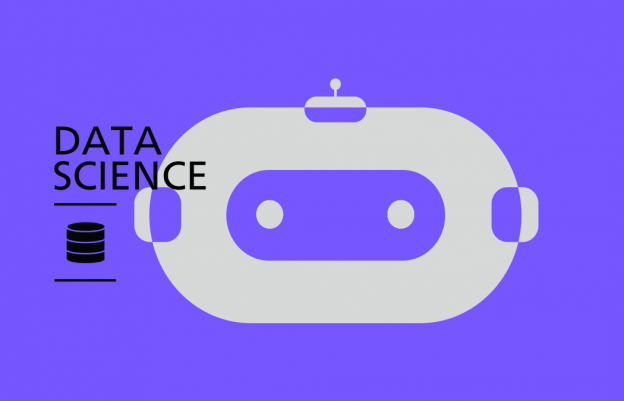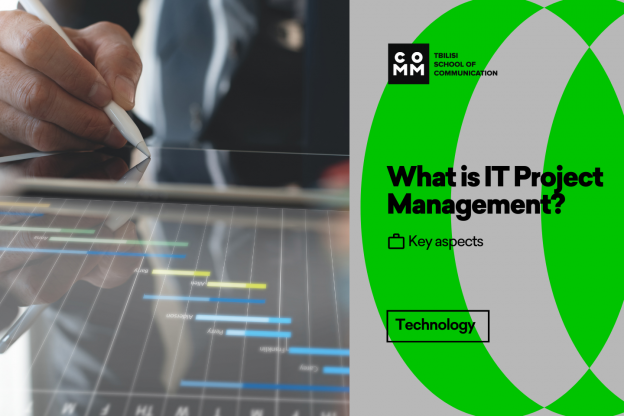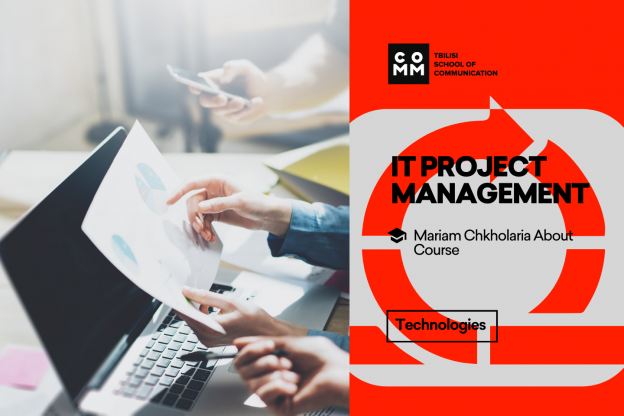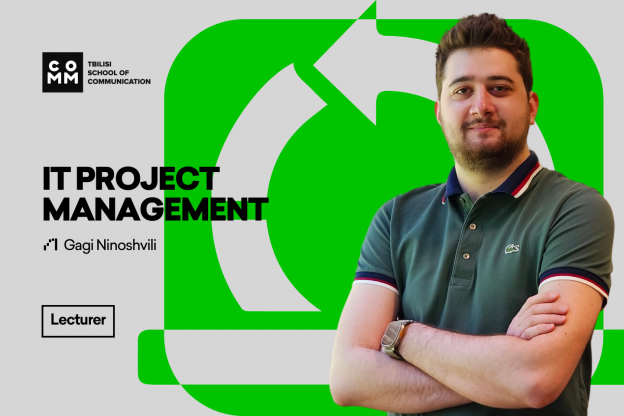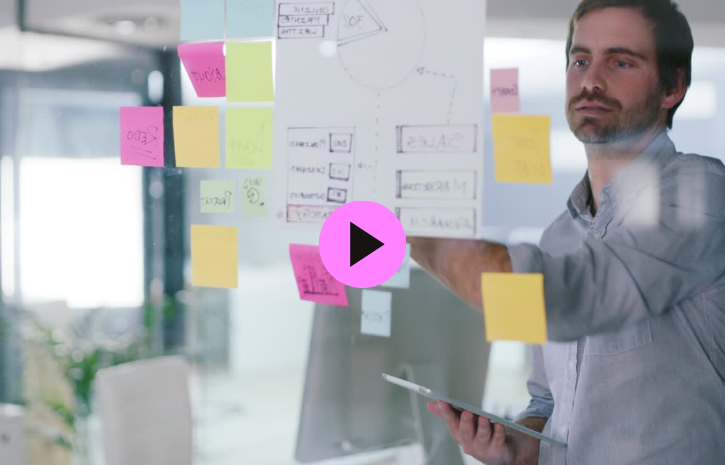
The program fully incorporates practice-based learning, during which students will have the opportunity to study project management methodologies and tools (Jira, Confluence, Clickup, Trello, Miro) currently used in the IT industry. We will review various project management approaches, but the main focus will be on the Scrum Framework of the Agile methodology. Students will participate in lecture workshops and simulations that will allow them to face future career challenges based on practice.
Throughout the program, students will work independently on an individual project that covers the full project management cycle. At the same time, they will familiarize themselves with industry-standard approaches and interview techniques and learn how to communicate effectively with project teams.
Outcome
Skills Acquired: Jira, Confluence, Clickup, Miro, Agile, Scrum.
-
Distinguish components within the IT industry
-
Manage IT projects using Agile methodology
-
Use current tools necessary for project management (Jira, Confluence, Clickup, Trello, Miro)
-
Manage communications and relationships within the project framework
-
Use the Scrum Framework
-
Communicate effectively with project teams
-
Identify project risks and develop action plans
Mon-Wed | 19:00-22:00
 TBC installment
TBC installment
 BOG installment
BOG installment
Who is this course for?

Beginners
The course is designed for all individuals who are interested in IT project management, are just entering the IT industry, and want to learn more about Agile management methodology.

Managers
For those who want to gain in-depth knowledge and practical experience in managing digital products.
Program includes
Alumni Club
Upon successful completion of the final exam, the graduate is automatically enrolled in the Alumni Club, and then gains access to exclusive events, content, and offers from our partner companies.
Work Based Learning
The course includes practice-based learning, including assignments/exercises and individual projects.
Bilingual Certification
Upon successful completion of the course, students will receive a bilingual certificate.
Graduate feedback
Syllabus
Pick your suitable time
Lecturers
Tornike Zaalishvili
IT Project Management & IT Business Analytics
Tornike Zaalishvili
IT Project Management & IT Business Analytics
Tornike holds a Master’s degree in Information Systems from Long Island University. He has 12 years of experience in digital product development, having worked in various roles, with extensive expertise as an IT Business Analyst. His portfolio includes projects related to digital product development, information platform creation, and ERP system development for companies such as the World Bank (Project), the National Agency of Public Registry, Wendy’s, Long Island University, Terminal, and others. For the past few years, he worked as an IT Business Analyst at TBC and is currently an IT Product Owner, managing the development of key banking products. Tornike holds certifications in Project Management (Prince2), Business Analysis (IQBBA), and Product Ownership (PSPO and PSPO II).
 Linkedin
Linkedin
Gagi Ninoshvili
IT Project Management
Gagi Ninoshvili
IT Project Management
Gagi has 5 years of experience working on digital projects and products. Over the years, he has held both Project and Product Manager positions in international companies such as Space International, Setanta Sports, EPAM Systems, and Singular (Flutter). He has worked on projects including sports streaming in 15 countries, transfers/payments/money remittances for an international bank with 4 million customers, and internal corporate use products. Currently, he is working on a startup, Moiispro AI, which aims to implement AI solutions in the daily work processes of companies in our region. Creating new experiences for users is what Gagi considers most important in his role as a Project/Product Manager. He believes that in any project, people's drive and attitude towards the work are crucial. With the ideal synthesis of these two factors, interesting digital projects can be created even with minimal resources.
 Linkedin
Linkedin
Nino Kuchashvili
IT Project Management
Nino Kuchashvili
IT Project Management
Nino has 10 years of experience in managing both hardware and software projects. A notable period in her career was working at Nokia, where she managed projects in the telecommunications sector. At various stages of her career, she has also held the role of Product Owner and has led the implementation of various regulatory and legislative changes in Georgia's leading technological organizations. Currently, she holds the position of IT Program Manager at Bank of Georgia. Nino holds PMP, PMI-ACP, PSM1, and PSPO1 certifications.
 Linkedin
Linkedin
Mariam Bakradze
IT Project Management
Mariam Bakradze
IT Project Management
Mariam has 8 years of experience in the IT field. During this time, she has held positions as a Product Manager, Project Manager, Program Manager, and Portfolio Manager. In the field of project management, Mariam is an internationally certified professional (PMP). She began her career in the development team at TBC Insurance. Since 2019, she has managed projects in areas such as Software & Database Development, Customer and IT Operations, Gaming, Marketing, and Finance. Since 2021, she has been leading portfolio management for the Georgian and Armenian markets at Adjarabet. Mariam also holds international certifications, including The Complete Agile Project Manager from the PMI Institute and Advanced Project Management from Bizpro Project Management Consultancy.
 Linkedin
Linkedin
FAQs for this course
Your search Digital Designer did not match any documents
Unable to locate relevant information?
Get Free consultationYou may interest
Relevant Resources
Show MoreWhat is IT Project Management?
From email and applications to data management and logistics, technology is essential for all businesses today. Even companies that are not technology-oriented need software to manage purchase orders or networks and be active on online platforms. And all technical goals of an organization must be properly managed for business success. This is where IT Project Management comes in.What exactly is IT project management? It's the successful oversight of any information technology project that an organization undertakes. IT project managers are responsible for planning, budgeting, executing, directing, troubleshooting, and technical maintenance of these projects. An IT project manager might perform the following types of tasks:Software, website, and application development;Network and cloud computing updates and/or expansion;Implementation of data management and business analytics solutions;Help desk support and other technological services; What skills do IT project managers need? To succeed, an IT project manager needs various technical and 'soft' skills. First and foremost, they need IT knowledge and experience in this field; they must know about technology, software, networking, infrastructure, and data security. They need data analysis and inference skills to develop effective solutions. Since they are responsible for budgeting, resource allocation, and managing data and project timelines, an IT project manager must also be an excellent and highly organized planner.Technical skills are not the only thing a project manager needs. As the de facto leader of their project team, they must also have excellent communication and leadership skills. These 'soft' skills are essential given that IT project managers may work with various external teams in the organization, such as business data, security, and procurement. IT Project Management: Components Like all projects that an organization undertakes, IT projects consist of five distinct but interconnected stages. These stages are typically divided as follows:Initiation: Identifying the project's purpose and creating the project. A feasibility study is conducted at this time to determine if the project is financially viable.Planning: All tasks required for each stage of the project are compiled, and resources are appropriately allocated. It's generally assumed that IT projects often need updates based on new technology developments and changes in priorities or unexpected variables. IT project managers typically plan projects in cycles.Implementation: In this phase, the IT project manager guides the entire team through each step of the project plan. The ultimate goal is to deliver the product or service.Monitoring and Control: The IT project manager is responsible for monitoring and controlling the work to ensure it's completed on time and within budget, while maintaining quality and reducing risks.Closure: This final stage ensures all work is completed, approved, and ownership is transferred from the project team to the operations group. So, if you're interested and see yourself in this field, don't waste time, join our IT Project Management course! Learn More
IT Project Management: Mariam Chkholaria about the Course
In the era of technological transformation, companies are trying to keep up with modern trends and offer their customers digital products and services. IT project management helps them successfully implement new ideas or improve existing ones. This direction ensures the effective planning and execution of digital projects. If you're interested in the processes of creating and developing digital products, check out this blog. Mariam Chkholaria, our graduate, will share her impressions about the IT project management program. Mariam had been interested in the IT project management course for a long time. She received a recommendation from her friend and developed a desire to study this field herself."I remember when I first learned about Agile methodology, I was excited, I liked its philosophy and wanted to be a part of it.Changing fields isn't such a simple matter, is it? I have a bachelor's and master's degree in business, I've been in marketing for six years, and suddenly hop into a completely new industry - it's not an easy step. But I also remembered that modern people don't find it difficult to change fields, they don't dedicate themselves to a single profession and will be more easily maneuverable, will go through adaptation, give up experience accumulated in a specific direction and dive headfirst into a new business.So I was interested in which profession in this field matched my skills and experience, and I started thinking, searching for information. Given that I was an account manager and my main strength was communication skills, I became interested in the role of IT project manager. I realized that these two professions have a lot in common, it seems that in both you need verbal and written communication skills, leadership, collaboration between teams, monitoring, ability to analyze results. There are probably many other commonalities, but this was enough to make a decision." "During the course, we used platforms and applications that still make it easier for me to solve everyday tasks." IT Project Management: What Does the Course Cover? Mariam's expectations for the course were definitely met, and she gained an even more interesting experience during the course than she expected. In her opinion, this was due to the assignments to be completed after each lecture, which were closely related to the theoretical material covered. Through these exercises, students tested and refined their knowledge in practice. She says that this course was quite consistent and the knowledge accumulated here can already be used not only in the context of IT projects, but in any issue. IT Project Management 13 Lecture| 39 Hours | 7 Week Learn More "I remember the first simulation project, where we all had different roles assigned. We conducted meetings so realistically and approached the simulation project so seriously, I think I already have work experience in this field." The syllabus and the lecturer were also interesting. Mariam notes that you can read many things in books and other electronic sources, but the experience that the lecturer shared with students is invaluable. This knowledge only comes through the work process. It was also pleasant for Mariam to discover that the techniques and approaches learned during the course can be used to solve any issue, whether it's measuring risks or making predictions. Final Project Students work on the final individual project at the end of the program, which is a kind of summary of the knowledge gained. Mariam notes that despite the rather voluminous task, the process of working on it turned out to be very pleasant. She devoted a lot of time to the project, worked continuously for hours, couldn't get away from it, and at the same time, enjoyed the process greatly. "I think I've already discovered a lot in this field and in myself. It's never too late to find a favorite job, a suitable industry and environment. And it's not a problem to leave it after we get bored. We live in a very diverse world with unlimited possibilities and we should never stop discovering ourselves from different perspectives." For those who want to completely change their field and are wondering if it's worth starting everything from scratch, Mariam definitely recommends taking this step. And we're waiting for you at Commschool for new challenges! Join us and start learning one of the most in-demand professions with a professional lecturer! Join Us
IT Project Management – Meet the Lecturer, Gagi Ninoshvili
Today, many companies are undergoing digital transformation, with advancements in information technology offering new opportunities. These innovations help create new digital products and services or improve existing ones, simplifying people’s everyday lives. IT project management plays a crucial role in successfully implementing these processes. Due to market trends, the demand for professional IT project managers is continuously increasing. If you're looking to acquire a highly paid profession and have an interest in digital products, you're in the right place. Meet Gagi Ninoshvili, a lecturer at Commschool, who will give you a comprehensive understanding of this field. Gagi’s experience in the field began in 2020 when he joined Flutter (then Singular) as an IT project manager. Soon after, he took on the additional role of Scrum Master, gaining valuable experience in understanding and implementing Agile approaches. He later worked at EPAM Systems as a business analyst for a year, where he further developed his skills and prepared for a product management role. After that, he worked for two years at Setanta Sports as a streaming product manager, and then transitioned to Space International, where for one year, he led transfer, payment, and international remittance products for TBC Uzbekistan’s market. Currently, Gagi is working at the startup Moiispro AI, which aims to integrate AI solutions into the everyday workflows of companies in the region. In today’s world, growth is unimaginable without continuous learning. Gagi notes that over the past five years, not a single week has gone by where he hasn’t learned something new—whether from work processes, interacting with people, or gaining theoretical knowledge. For Gagi, gaining new knowledge in the field is driven by curiosity. He spends most of his free time researching, listening to podcasts and video lectures, or simply reading the news. This allows him to view everyday work issues from different perspectives. In terms of modern resources, Gagi believes that exploring various educational websites and learning from today’s successful individuals is more valuable than simply reading professional literature or pursuing certifications, though he does not diminish the importance of theoretical certification. Profession: IT Project Manager At the age of 15-16, when he first began to understand business decisions, Gagi started reading and analyzing various business cases. He realized that thinking about solving business problems would be something he’d be actively involved with in the future. At the same time, he knew his daily work would need to be closely connected with modern technology. These thoughts led him to the Business School of Free University. Eventually, Gagi found himself in IT project management and then product management, which turned out to be exactly what he had envisioned at 15-16, even though he didn’t know back then that it was called "product management." IT Project Management 13 Lectures | 39 Hours | 7 Weeks Course Overview Simply put, IT project management is the art of turning an idea into reality. A project manager must be able to take even a few words of an idea and transform it into a complete, detailed plan. Then, they must gather a team around them and guide the team through the phases of planning, executing, monitoring, launching, and closing the project. The project manager’s role is proactive by nature. These are the individuals who manage the project’s workflow, assist the team members, and work to improve the overall effectiveness of the team. A large part of an IT project manager’s job is ensuring proper and timely communication. They take responsibility for any delays or unexpected changes and must efficiently involve other teams in resolving issues or managing changes when necessary. The demand for IT project managers is growing both locally and globally, driven by technological advancements and the widespread accessibility of these technologies. Gagi emphasizes that in today’s digital world, countless ideas are born and die simply because we didn’t try hard enough, didn’t gather enough people, couldn’t secure sufficient resources, or simply didn’t process the idea in enough detail. This is why the role of IT project managers has become more popular—there is a growing need for leaders who can turn ideas into reality. One of the most significant guarantees that the demand for project managers will grow in the coming years is artificial intelligence (AI). AI opens up endless possibilities, but these ideas cannot be fully developed without project management skills. Knowledge and Skills Needed for IT Project Management Two main methodologies are typically highlighted in project management: Waterfall and Agile.Waterfall is a more structured methodology where you cannot start a new phase without completing the previous one. This is rare in modern digital projects, but a good example of the Waterfall approach is construction, where the budget is fixed, the plan is detailed, and each stage requires the previous one to be completed before moving forward.For modern digital projects, Agile methodology and its Scrum framework are considered the most effective approaches today. Agile is not just a management methodology but a mindset that focuses on understanding, collaboration, communication, and continuous improvement, as reflected in Agile’s core principles. In addition to a sense of responsibility, Gagi believes that strong communication skills are the most essential for project managers. Communication with the team, stakeholders, and customers significantly increases the chances of project success. Gagi notes that acquiring hard skills is the easiest part of learning this profession because there is nothing insurmountable in mastering theoretical knowledge. The key focus, however, is on soft skills and the right mindset, enabling you to view the process from the perspective where quick responses are needed. Potential problems and risks can be avoided through proper and timely communication. A tool Gagi can’t imagine working without is Miro. For a project manager, it’s crucial to communicate ideas clearly, quickly, and understandably to the appropriate audience—whether that’s team members, stakeholders, other teams, customers, or top management. Visualization is the simplest and most effective way to do this. Additionally, task management and document management tools are also important. Although many different programs are used in various work environments (ClickUp, Trello, Asana), Gagi considers Jira and Confluence to be unmatched in this regard. Career Prospects Anyone from any profession can start a career in this field. Previous experience can be valuable when studying IT project management, especially if your work involves communication and planning. According to Gagi, a common misconception is that the lack of experience in IT is a barrier to becoming an IT project manager, which is a big mistake. Learning project management doesn’t require in-depth IT knowledge—just a basic understanding of the field, which can be acquired during the learning process. Artificial intelligence is creating an endless wave of opportunities that will only grow larger in the coming years. However, this does not mean that the role of project managers is at risk. In fact, the opportunities AI provides require proper management. AI can plan projects perfectly, but we need to evaluate whether these plans meet our needs. We must see the needs of customers and plan projects accordingly, alongside AI. When it comes to implementation, the role of the project manager remains indispensable. Each new project involving AI provides new knowledge and opens the door to future projects. Acquiring, absorbing, and analyzing this knowledge is crucial for IT project managers. About the IT Project Management Course As mentioned, Gagi will lead the IT Project Management course at Commschool. The knowledge gained from this course will be sufficient to independently manage your first digital project. Basic knowledge is essential in this field, and short-term courses like those offered at Commschool are the most convenient way to acquire it. Most of the lectures will focus on analyzing real-life cases, where you will discuss successful strategies and potential mistakes an IT project manager or team could make in different situations. The course covers managing IT projects using Agile methodology, Scrum framework implementation, identifying project risks, and creating action plans. It’s a practical, hands-on learning experience, where you’ll complete various tasks and an individual project, gaining valuable practical experience. For initial knowledge, Gagi recommends Atlassian’s simple learning materials, which provide a good overview of terminology and concepts. Additionally, he emphasizes the importance of incorporating AI into the self-development process, as spending time with AI tools is incredibly valuable. With tools like ChatGPT, Perplexity, and Google Gemini, you can learn how to properly frame tasks for AI, which will, in turn, provide more useful information. That’s the professional path of an IT project manager. If you’re interested in this field, join us at Commschool! Take advantage of this opportunity and master one of the most in-demand skills of the future with the guidance of a professional lecturer. Join Us
 Beginner
Beginner  Live-online
Live-online

 Intermediate
Intermediate 